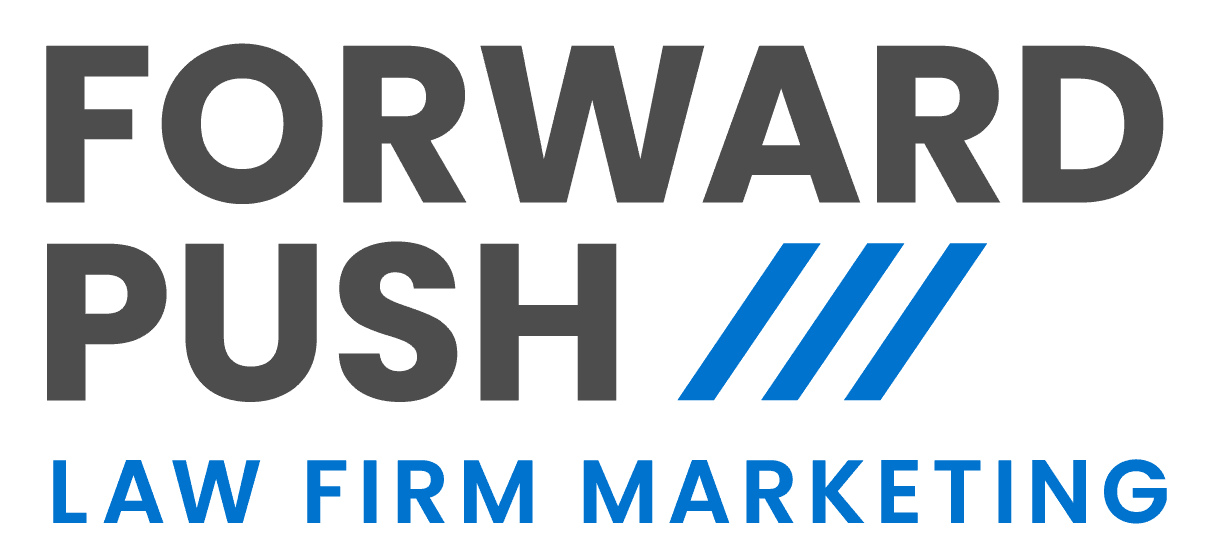By Marc Apple ● ● 7 min read

Table of Contents
TL:DR AI is transforming law firms by improving efficiency, automating tasks, and enhancing legal research. While AI won’t replace lawyers, it requires responsible integration to avoid pitfalls like misinformation and confidentiality risks.
No time to read? Listen to a conversation about this blog post instead.
Artificial Intelligence (AI) is no longer a futuristic concept—it’s here, and it’s transforming how law firms operate. From streamlining administrative tasks to enhancing legal research, AI is reshaping the profession in ways that were unimaginable even a few years ago. However, the adoption of AI comes with misconceptions, ethical considerations, and a need for responsible implementation.
At the Cobb County Bar Association CLE program, A.I. and the Practice of Law: Cutting Through All the Chatter, Attorneys Tracy Rhodes of Rhodes Law and Darrell Sutton of Sutton Law Group shared their insights on AI’s role in law firms.
Their perspectives, combined with key research on AI’s impact, highlight how firms can leverage AI effectively while maintaining ethical and professional standards.
Common Myths About AI in Law Firms
One of the most persistent myths about AI in the legal industry is the fear that it will replace lawyers. According to Sutton, this concern is unfounded:
“AI is tech. Like any tech, it’s only as good as the input it’s given. That takes an intelligent human to do right and to do well. AI will never function independently of the lawyer.”
Rather than replacing attorneys, AI is enhancing their work by automating routine tasks, allowing them to focus on higher-value legal analysis and client interactions. The firms that understand this will have a competitive advantage over those that resist change.

Rather than replacing attorneys, AI is enhancing their work by automating routine task
AI in Legal Practice: Key Applications
Practical Implementation Tips
For law firms looking to integrate AI effectively, here are some key steps to consider:
- Start with Administrative Automation: Use tools like Zapier and IFTTT to automate repetitive administrative tasks, such as scheduling, invoicing, and email management. Rhodes highlights that while automation takes time to refine, it can significantly reduce workload.
- Leverage AI for Document Review: AI-powered platforms can help lawyers quickly analyze contracts and identify key clauses, but human oversight is essential. Rhodes emphasizes the importance of verifying AI-generated summaries to ensure accuracy.
- Adopt AI in Legal Research: Tools like Westlaw and LexisNexis integrate AI for faster and more precise case law research. AI can help attorneys find relevant precedents more efficiently, cutting down hours of manual work.
- Enhance Client Communication: AI-powered receptionists like Smith AI can handle appointment scheduling and routine inquiries, making firms more accessible to clients at any time.
- Ensure Ethical Compliance: Stay updated with guidelines from the State Bar of Georgia and implement internal policies to responsibly integrate AI while maintaining data security and confidentiality.
Case Study: AI in Action at a Law Firm
Rhodes has actively embraced AI-driven tools to improve efficiency in her practice. One of the most significant ways she has incorporated AI is through document review and contract analysis. Rhodes explains:
“Comparing lengthy contracts and identifying differences—this is hours of work that AI can do in minutes. You still have to check it, but it gives you a great starting point.”
Beyond document review, Rhodes has also used AI-powered administrative tools like Zapier and IFTTT to streamline office processes. While this automation required initial setup and refinement, it has ultimately reduced manual workload and improved client service.
Client communication is another area where Rhodes has seen AI’s benefits. She currently uses Smith AI, an AI-powered receptionist service, to handle appointment scheduling and answer common inquiries. This allows her clients to book consultations seamlessly, improving accessibility and convenience.

AI has ultimately reduced manual workload and improved client service
The Ethical and Regulatory Landscape
The State Bar of Georgia has been actively involved in addressing the integration of AI into legal practice. The State Bar formed a Special Committee on Artificial Intelligence and Technology, tasked with reviewing the Georgia Rules of Professional Conduct in relation to advancements in AI. This committee evaluates whether current rules adequately address lawyers’ technology-related conduct and makes recommendations to the Board of Governors and the Supreme Court on potential revisions to ethics rules.
Additionally, the Supreme Court of Georgia has established the Judicial Council of Georgia Ad Hoc Committee on Artificial Intelligence and the Courts. This committee assesses the risks and benefits of using Generative AI in the courts and aims to maintain public trust in the judicial system.
The collaboration between the State Bar and the judicial initiatives focuses on ethics, governance, and the education of legal professionals about AI’s benefits and risks. As AI becomes more integrated into legal work, regulatory bodies are considering necessary updates to professional conduct rules. Sutton’s committee has identified several areas requiring modification, including:
- Clarifying technology definitions to include generative AI tools
- Mandating disclosure when AI is used in client-facing interactions
- Ensuring data security when AI processes sensitive client information
Sutton highlights the challenge of keeping regulations current:
“We’re updating rules for today’s AI, but by the time they’re in place, technology will be three steps ahead.”
This underscores the importance of ongoing education and vigilance in AI adoption.
Real-World AI Failures in Law Firms
While AI has introduced significant efficiencies, it has also led to notable missteps in the legal profession. One of the most well-known issues is AI-generated ‘hallucinations,’ where AI fabricates case law or legal citations. Attorneys who have relied too heavily on AI without verifying its output have faced professional embarrassment and even sanctions.
For example, in several widely publicized cases, lawyers submitted AI-generated legal briefs containing entirely fictitious case citations. These incidents highlight the critical need for human oversight in AI-assisted legal research. Sutton emphasizes that while AI is a powerful tool, it cannot replace a lawyer’s judgment:
“AI is great at generating a first draft, but you still need a lawyer to refine that and make it usable.”
Another significant risk involves confidentiality breaches. If legal professionals input sensitive client information into AI tools without proper safeguards, they may unknowingly expose privileged communications to third-party systems. The State Bar of Georgia is actively reviewing these risks to ensure ethical AI adoption across law firms.
Potential Challenges and Pitfalls
While AI offers significant advantages for law firms, its implementation is not without challenges. Attorneys must navigate several potential pitfalls, including:
- AI Hallucinations and Accuracy Issues: AI-generated text and legal research must be carefully reviewed to prevent the risk of misinformation. Rhodes notes that AI can provide a strong starting point, but human oversight is essential to avoid errors.
- Confidentiality and Security Concerns: AI tools often process sensitive client information. Law firms must ensure compliance with data protection regulations and avoid exposing privileged communications to third-party AI providers.
- Resistance from Senior Attorneys: Many seasoned lawyers are hesitant to adopt AI, fearing that automation will undermine traditional legal expertise. Sutton highlights that AI should be viewed as a tool for efficiency rather than a replacement for human judgment.
- Ethical and Regulatory Uncertainty: The evolving nature of AI means that legal ethics rules struggle to keep up. The Georgia Bar’s ongoing efforts to refine regulations indicate that firms must remain proactive in ensuring their AI use aligns with professional standards.

While AI offers significant advantages for law firms, its implementation is not without challenges
The Future of AI in Law Firms
The legal profession is at an inflection point. Clients are becoming more tech-savvy and expect efficiency from their legal representatives. Rhodes predicts that firms resistant to AI adoption will struggle:
“Law firms reward inefficiency, but clients won’t. They’re going to ask why they’re paying for 10 hours of work AI can do in one.”
Embracing AI doesn’t mean replacing human expertise; it means leveraging technology to provide better service, reduce costs, and stay competitive. As more law firms integrate AI, those that fail to adapt risk falling behind.
Taking the Next Steps with AI in Your Law Firm
AI is transforming the legal profession, and firms that embrace it strategically will position themselves for long-term success. Integrating AI while maintaining ethical and professional standards is essential in today’s evolving legal landscape. By assessing current workflows, implementing AI-driven tools that align with specific legal needs, and staying informed on regulatory developments, firms can gain a significant competitive edge.
Rather than being a threat, AI serves as a powerful tool to enhance efficiency, accuracy, and client service. The key is not whether AI should be adopted, but how law firms can leverage it responsibly to better serve their clients and drive operational excellence.
If you would like to have me and my team personally review your law firm’s marketing strategy, assess how AI can enhance your client acquisition and operational efficiency, and identify opportunities for growth and optimization, click to schedule your free Lead Flow Acceleration Session now.
FAQ on How AI and is Reshaping Law Firms
How is AI transforming law firms?
AI is enhancing legal research, improving efficiency, and automating tasks. It streamlines administrative work and allows attorneys to focus on complex analysis and client interaction.
Will AI replace lawyers?
No, AI will not replace lawyers. It is a tool that enhances their work by automating routine tasks, enabling lawyers to focus on higher-value legal analysis and client interactions.
What are some practical applications of AI in legal practice?
AI can be used for administrative automation (e.g., scheduling, email management), document review and contract analysis, legal research, and client communication (e.g., AI-powered receptionists).
What are the potential challenges and risks of using AI in law firms?
Challenges include AI-generated misinformation, confidentiality and data security concerns, resistance from attorneys, and ethical and regulatory uncertainty.
How can law firms responsibly integrate AI?
Law firms should start with administrative automation, leverage AI for document review with human oversight, adopt AI in legal research, enhance client communication, and ensure ethical compliance by staying updated with guidelines and implementing internal policies. It is also important to maintain data security when processing sensitive client information.




